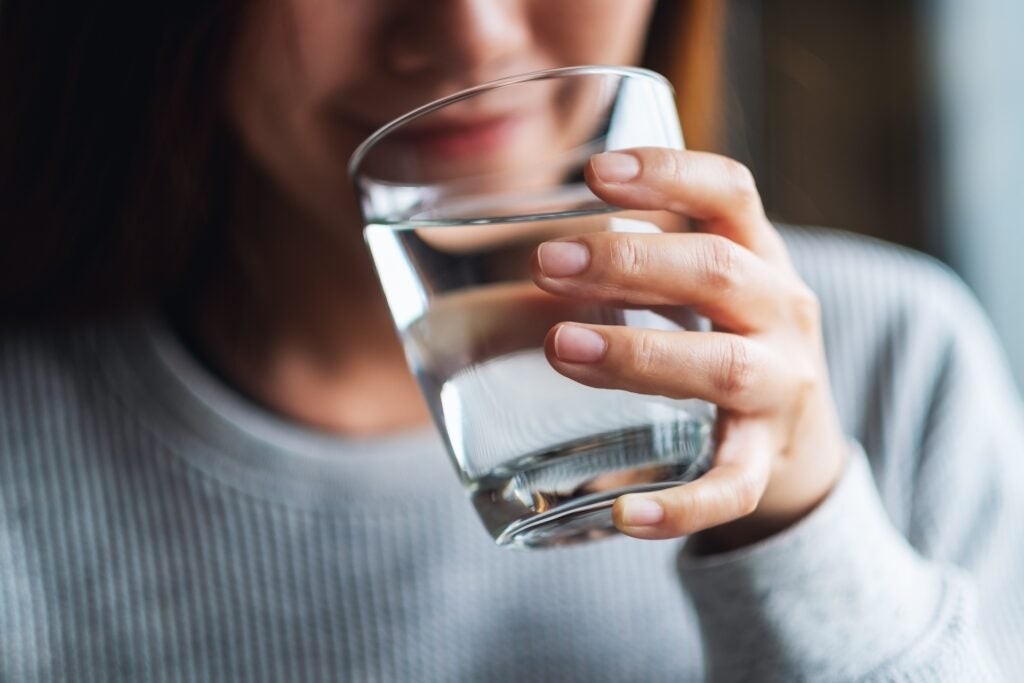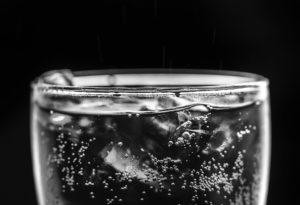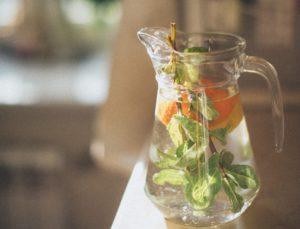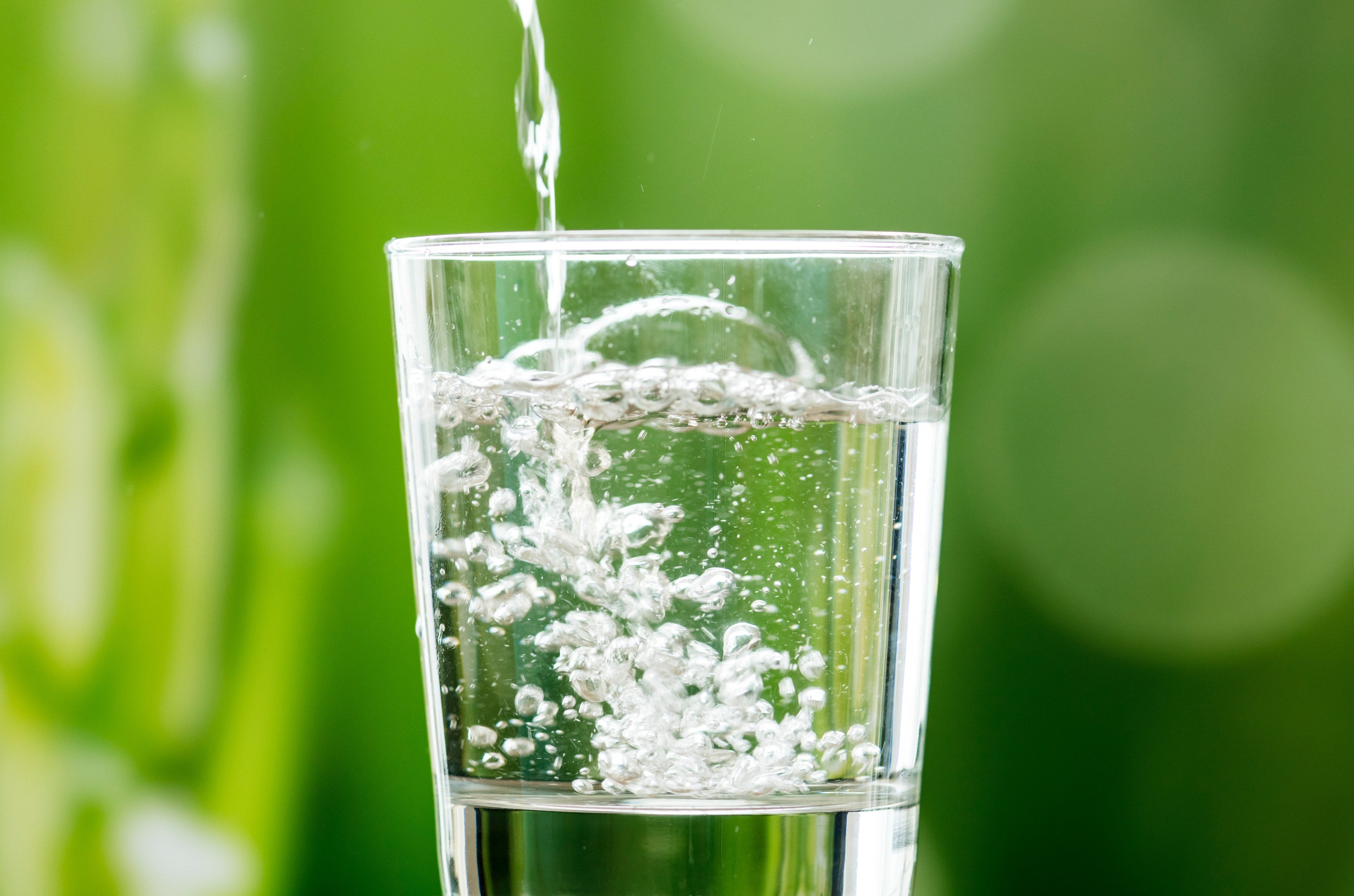Water is essential for life, playing a vital role in almost every bodily function. From regulating your temperature to transporting nutrients, water keeps your body running smoothly. With so much emphasis on healthy living, it’s natural to wonder, How Many Oz Of Water Should You Drink A Day to stay properly hydrated? You’ve probably heard the common recommendation of “8 glasses a day,” but is it really that simple?
This article dives into the science-backed guidelines for daily water intake, helping you understand your individual needs and how to ensure you’re drinking enough to support your health. We’ll explore the factors that influence how much water you need, how to recognize dehydration, and practical tips to make staying hydrated a breeze.
Understanding Your Daily Water Needs
Water is a major component of your body, making up about 60% of your body weight. It’s crucial for numerous processes, including:
- Temperature Regulation: Water helps you sweat and maintain a normal body temperature, preventing overheating.
- Nutrient Transport: Water carries nutrients to your cells and helps remove waste products.
- Joint Lubrication: Water lubricates your joints, keeping them moving smoothly.
- Skin Health: Adequate hydration contributes to healthy, supple skin.
- Digestion: Water is necessary for proper digestion and preventing constipation.
Staying hydrated is not just about quenching thirst; it’s a cornerstone of overall health and well-being.
General Recommendations for Daily Water Intake
While the “8 glasses a day” rule is widely known, it’s not a one-size-fits-all recommendation. Individual water needs vary based on several factors. Instead of a rigid target, think of it as a general guideline to help you stay adequately hydrated.
The National Academy of Medicine Guidelines
The National Academy of Medicine provides recommendations for adequate daily fluid intake, which includes water from all beverages and foods, not just plain water. Their guidelines suggest:
- Men (19 years and older): Approximately 13 cups (104 ounces) of fluids per day.
- Women (19 years and older): Approximately 9 cups (72 ounces) of fluids per day.
It’s important to remember that these are adequate intake levels, not strict daily targets. Many healthy individuals can thrive on slightly less, while others, especially those who are very active or live in hot climates, may need more. Your individual needs can even fluctuate from day to day.
Factors That Influence Your Water Needs
Several factors can influence how much water your body requires daily:
- Physical Activity: When you exercise, you lose water through sweat. The more intense and longer your activity, the more fluids you’ll need to replenish.
- Climate: Hot and humid weather increases sweat production, leading to greater fluid loss. Similarly, dry climates can also lead to increased fluid loss through respiration.
- Fever, Vomiting, and Diarrhea: These conditions can cause significant fluid loss, requiring increased water intake to prevent dehydration.
- Body Size: Larger individuals generally have higher fluid needs than smaller individuals.
Using Urine as an Indicator of Hydration
Your urine can provide a simple visual clue to your hydration status. Generally, the color of your urine indicates its concentration:
- Pale yellow urine: Typically a sign of good hydration.
- Dark yellow urine: Often suggests you may need to drink more fluids.
However, it’s important to note that certain foods, medications, and vitamin supplements can also alter urine color, so it’s not a foolproof method but rather a general indicator. Low urine volume, especially if dark in color, can be a sign of dehydration.
Alcohol and Hydration
Alcohol acts as a diuretic, suppressing the anti-diuretic hormone (ADH). ADH signals your kidneys to conserve water. When ADH is suppressed, your body eliminates water more readily through urine. Consuming more than a couple of alcoholic drinks, particularly on an empty stomach, can increase dehydration risk. To mitigate this, drink water alongside alcoholic beverages and consume alcohol with food.
Caffeine and Hydration
Despite long-held beliefs, moderate caffeine consumption doesn’t necessarily lead to dehydration. Research indicates that while high doses of caffeine (over 180mg, roughly two cups of coffee) might increase urination in the short term for some individuals, it doesn’t typically result in overall dehydration. Therefore, caffeinated beverages like coffee and tea can contribute to your daily fluid intake.
Water from Food
Don’t forget that a significant portion of your daily water intake comes from food. Approximately 20% of your total water intake can come from water-rich foods such as:
- Lettuce and leafy greens
- Cucumbers
- Bell peppers
- Summer squash
- Celery
- Berries
- Melons
Incorporating these foods into your diet can contribute to your overall hydration.
Recommended Daily Water Intake by Age Group
The National Academy of Medicine provides specific adequate intake recommendations for different age groups, considering their varying physiological needs:
| Age | Daily Adequate Intake |
|---|---|
| 1-3 years | 4 cups, or 32 ounces |
| 4-8 years | 5 cups, or 40 ounces |
| 9-13 years | 7-8 cups, or 56-64 ounces |
| 14-18 years | 8-11 cups, or 64-88 ounces |
| Men, 19 and older | 13 cups, or 104 ounces |
| Women, 19 and older | 9 cups, or 72 ounces |
| Pregnant women | 10 cups, or 80 ounces |
| Breastfeeding women | 13 cups, or 104 ounces |




These guidelines offer a starting point, but remember to adjust your intake based on your individual circumstances and activity levels.
Is Thirst a Reliable Indicator of Hydration?
Your body has a built-in mechanism to signal when you need fluids: thirst. Thirst is the desire to drink and is triggered by both physiological and behavioral cues.
The Thirst Mechanism
When your body starts to become dehydrated, it sends signals that manifest as thirst. This is a natural and effective prompt for most people to drink fluids. Behavioral factors can also influence drinking habits. For instance, studies suggest people tend to drink more water when it’s at room temperature, even though they might perceive colder drinks as more palatable. Social settings can also influence both eating and drinking habits.
Limitations of Thirst as We Age
As we age, the body’s ability to regulate fluid intake and the sensation of thirst can diminish. Research has shown that these regulatory mechanisms become less effective in older adults. Studies indicate that common indicators of dehydration in older adults, such as urine color, urine volume, and feeling thirsty, are not always reliable. Certain conditions affecting cognitive function, like stroke or dementia, can also impair thirst sensation. Additionally, some older adults may intentionally limit fluid intake due to concerns about incontinence or mobility issues related to bathroom access.
When Thirst May Not Be Enough
Beyond aging, there are other situations where relying solely on thirst might not be sufficient to maintain adequate hydration. Athletes, individuals who are ill, and infants may not always experience a strong enough thirst sensation to meet their fluid needs. Even mild dehydration can lead to noticeable symptoms. For those who can’t fully rely on thirst, proactive strategies are helpful. A practical approach is to fill a 20-ounce water bottle and aim to drink four of these throughout the day, or to make it a habit to drink a large glass of water with each meal and snack.
Recognizing Dehydration: Symptoms and Risks
Even mild dehydration, as little as a 2% water deficit, can produce noticeable symptoms. Recognizing these early signs is key to addressing dehydration promptly.
Early Symptoms of Dehydration
- Fatigue: Feeling unusually tired or lacking energy.
- Confusion or Short-Term Memory Loss: Difficulty concentrating or remembering things.
- Mood Changes: Increased irritability, anxiety, or even feelings of depression.
Health Risks Associated with Dehydration
Chronic or severe dehydration can increase the risk of various health issues, including:
- Urinary Tract Infections (UTIs)
- Kidney Stones
- Gallstones
- Constipation
Staying adequately hydrated is a simple yet powerful way to support your overall health and prevent these potential complications.
Alkaline Water: Hype vs. Health
Alkaline water has gained popularity recently, often promoted with claims of various health benefits, from weight loss to disease prevention. The theory behind alkaline water mirrors the alkaline diet trend, suggesting that alkaline foods can counteract the supposed negative effects of “acid-producing” foods like meat, sugar, and certain grains.
The pH scale, ranging from 0 to 14, measures acidity and alkalinity. A pH of 7 is neutral, below 7 is acidic, and above 7 is alkaline. The human body tightly regulates blood pH around 7.4. Significant deviations from this range can be harmful and are typically associated with medical conditions like uncontrolled diabetes, kidney disease, or lung disease, not solely diet.
Alkaline water typically has a pH of 8-9, slightly higher than tap water (around pH 7), due to a higher mineral content. Some natural water sources are alkaline due to mineral absorption from rocks. However, most commercial alkaline water is produced using ionizers that separate water into alkaline and acidic components. Some people also make alkaline water by adding baking soda to regular water.
The scientific evidence supporting the “acid-ash theory,” which suggests diet significantly alters blood pH and impacts health, is not conclusive. While some believe certain foods might slightly lower blood pH, particularly without sufficient intake of alkaline-promoting foods like fruits and vegetables, controlled studies haven’t shown diet alone to drastically change blood pH in healthy individuals. Furthermore, a direct link between blood pH within the normal range and chronic disease in humans hasn’t been firmly established.
Bottom Line on Alkaline Water
If drinking alkaline water motivates you to increase your overall water intake, then it’s unlikely to be harmful. However, it’s important to recognize that the purported health benefits are not strongly supported by scientific evidence. Plain, regular water is just as effective, if not more so, for achieving the primary benefits of hydration: improved energy levels, mood, and digestive health.
Can You Drink Too Much Water? Water Toxicity
While rare, it is possible to drink too much water, leading to a condition called water toxicity or hyponatremia. There’s no established Tolerable Upper Intake Level for water because healthy kidneys can typically excrete excess water through urine. However, if you consume a large volume of water in a short period, exceeding your kidneys’ excretion capacity, it can lead to hyponatremia.
Hyponatremia occurs when excessive water intake dilutes sodium levels in the blood to dangerously low levels. Sodium is crucial for maintaining fluid balance, nerve function, and muscle contractions. Symptoms of hyponatremia can include confusion, nausea, seizures, and muscle spasms.
Hyponatremia is more commonly observed in individuals with underlying medical conditions that impair kidney function or in situations of extreme heat stress or prolonged strenuous exercise where excessive water intake is combined with sodium loss through sweat. Endurance athletes, like marathon runners and triathletes, are at higher risk as they may drink large amounts of water during events while losing sodium through sweat. Women and children are also potentially more susceptible due to their smaller body size.
Tips to Make Hydration More Enjoyable
Plain water is the best choice for hydration – calorie-free and readily available. However, if you find plain water bland, especially if you’re used to sugary drinks, there are many ways to make it more appealing and increase your fluid intake.
Infused Water Recipes
Instead of buying expensive flavored waters, easily create your own refreshing infused water at home. Simply add any of the following to a glass or pitcher of cold water:
- Sliced citrus fruits or zest (lemon, lime, orange, grapefruit)
- Crushed fresh mint
- Peeled, sliced fresh ginger or sliced cucumber
- Crushed berries
Experiment with different combinations to find your favorite flavors.
Sparkling Water with Juice
Sparkling juices can be surprisingly high in calories, similar to sugary sodas. A healthier alternative is to make your own sparkling juice by combining sparkling water with a small splash of 100% fruit juice (about an ounce or two per 12 ounces of sparkling water). Enhance the flavor further with citrus slices or fresh herbs like mint.
Reusable Water Bottles
To reduce waste and make hydration convenient, invest in a reusable water bottle. Choose a colorful, durable bottle in a size that suits your needs (20-32 ounces is a good range). Keep it with you throughout the day and refill it regularly.
Is Carbonated Water Healthy?
Carbonated water, including seltzer and sparkling water, is often suggested as a healthier alternative to soda. Carbonation is achieved by dissolving carbon dioxide gas in water under pressure, which creates bubbles. This process lowers the pH of water, making it slightly more acidic (around pH 4).
Concerns have been raised about whether the acidity of carbonated water could harm dental enamel or bone health. However, research has not found a link between unsweetened carbonated beverages and dental decay. Dental problems are primarily associated with sugary or sweetened carbonated drinks. Similarly, studies have not shown that carbonated water negatively impacts bone mineral density. The bone health concerns related to some sodas are more likely due to their high phosphorus content, particularly in dark colas, rather than carbonation itself.
Bottom Line on Carbonated Water
Unsweetened carbonated waters are a safe and healthy beverage choice. They do not carry the same health risks as sugar-sweetened carbonated drinks like soda. If you enjoy the fizz, unsweetened carbonated water can be a refreshing and hydrating option.
Staying adequately hydrated is a fundamental aspect of maintaining good health. While the exact amount of water you need daily varies, understanding the general guidelines and listening to your body’s signals are key. Make water your beverage of choice and explore flavorful ways to make hydration enjoyable and consistent.